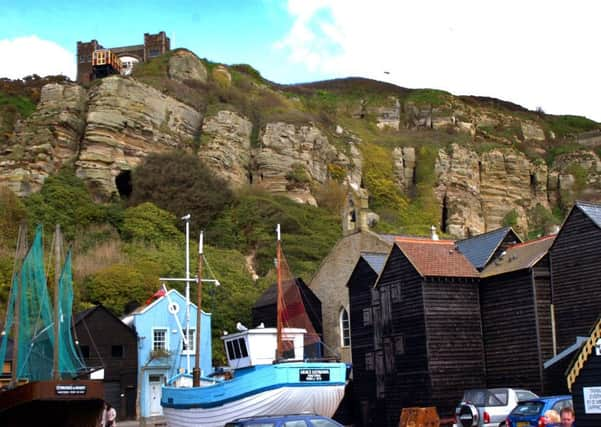Expert gives talk atShipwreck Museum


The talk takes place at the museum, in Rock-a-Nore Road, on Sunday January 22 at 2pm.
It will cover marine archaeology and the fishing industry protocol for archaeological discoveries.
Advertisement
Hide AdAdvertisement
Hide AdJacqui Stanford, from the Shipwreck Museum, said: “The fishing industry has since time immemorial recovered items from the sea, be they from inundated palaeolandscapes, lost from ships or the result of conflict or disaster.
“These items can contribute valuable information to our shared maritime history.
“They range from prehistoric flints and mega-faunal remains through to modern conflict debris via Roman pottery, medieval cannonballs, trade goods from the age of empire, to ship and aircraft fragments from the modern period.
“FIPAD is a reporting protocol that provides a voluntary mechanism for the reporting of these finds.
Advertisement
Hide AdAdvertisement
Hide AdProtocols have become an increasingly used form of mitigation against the direct impact of any negative effects on the unknown heritage assets that lie off the coasts of Britain.
“This talk will discuss some of the material recovered, put it context, and demonstrate its contribution to the widening of the knowledge we have of our shared past.”
Further information on the project and its finds can be found via http://fipad.org/
The Shipwreck Museum is an independent charitable museum which has artefacts from many ships wrecked in the English Channel from the Goodwin Sands in Kent to Pevensey Bay in East Sussex including the Amsterdam a Dutch East Indiaman of 1749 and the Anne of 1690 as well as the Charles II warship.
Advertisement
Hide AdAdvertisement
Hide AdThere are also exhibits of fossils found in the local area. It is a multi-sensory museum with sound, touch and smell. Admission to the museum is free.
The wreck of the Amsterdam is the most notable feature of the beach at Bulverhythe, the tops of its ribs being exposed in the sands and the peaty clay of the prehistoric forest. This large Dutch East Indiaman was run ashore in a severe gale on Sunday January 26 1749.
The Amsterdam is of global importance since she is two-thirds complete, the most intact East Indiaman of any country known in the world.